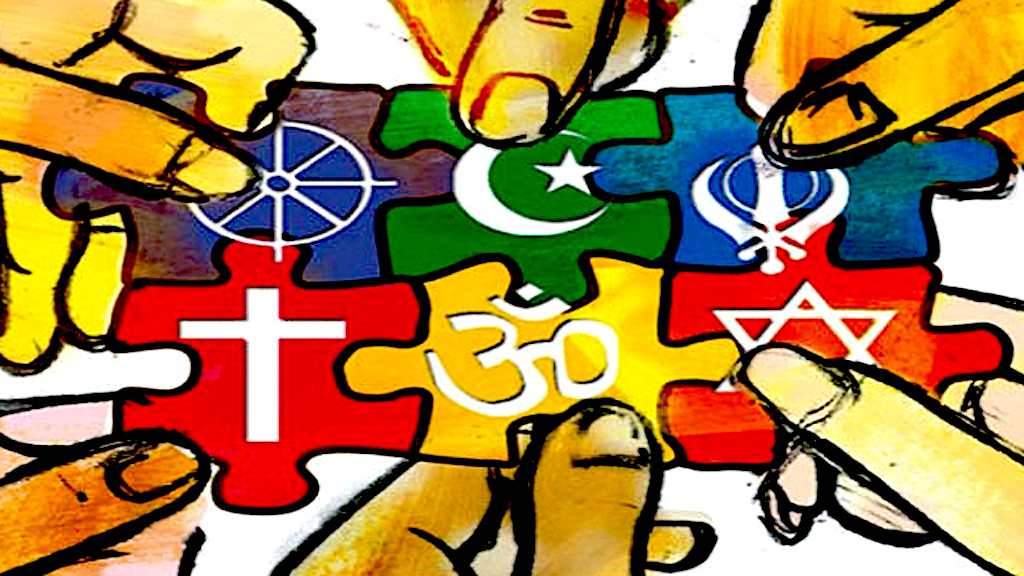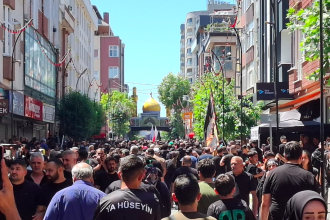By Asrarul Haque Jeelani
In continuation of the debate of intolerance and tolerance, the recent statements and responses around do not seem to be the last but a step ahead in the process of evolution to understand the tolerant or intolerant country. It is also a step forward for contextual understanding or an attempt to blur the boundaries of the concepts; depends on how we debate and discuss. Whatsoever the future would be, but the country is neither a complete tolerant nor complete intolerant. For that matter, any society is neither a complete tolerant nor complete intolerant in its true sense. The society is not the name of one or two institutions but a whole of the different institutions or elements of it. Among these elements, one could be tolerant and another could be intolerant from a certain perspective. It can also be said that specific institution could be intolerant and tolerant at the same time through two different groups of people’s perspectives.
Whatever is happening in the country since the award wapsi movement against the rising intolerance in the country, is not the whole picture but no one can deny the fact that the perspective from where the declaration of intolerance is coming has no value in it to consider. Two different groups of people are propounding two different perspectives about different social institutions and we are taking it as a universal phenomenon of the society, so the confusion is spotted here. One group of peoples are saying “intolerance has increased in our country” however another claims that “India is a most tolerant country in the world”. Both of them are right in their own perspective; as one group is saying ‘tolerant country’ on the basis of certain traits of the society however ignoring another aspect. In contrary, the other group says the country is intolerant as mob lynching has increased, cow vigilantism is on rage and hate crime has reached on top. The data on religious freedom and social hostility index also indicates the intolerance for certain community and ideologue has increased in the country. If later socially positioned and lived experienced section of the society claims intolerance has increased then there is a question that why fellow citizens are not able to understand the perspective or meaning or experiences behind the statements? The clarity of the debate is not complex in their sense but we just need to understand the social position of the statement maker and the institution or element of the society or indicators about which statement has been made. Even though the social position is known and to a certain extent the social institutions then what else is on the road is a barrier?
The political or religious polarization has created the gap between the communities and the controversies around a cow, lynching and Babri Masjid/Ram Mandir issue has the same impact, in-fact tool for polarization. These issues are further being barriers to understand each other’s perspectives and lived experiences. What if your fellow citizen could not understand your perspective and what you say is not given due respect at-least? The liberalization of spaces, sharing culture, reducing the gap between the communities could be the options. The process of polarization, forceful ghettoization, exclusions in a social gathering and shrinking public spaces for a certain section is creating watertight compartments for two different sections of the society. This compartmentalization of different groups in our society increases the chances of misunderstanding the perspectives or statements if one section of the society is apprehending. This apprehension has been misused in the media houses to polarize the community along with Hindutva fascist agendas. In this way, our media has failed to create tolerant opinions about the intolerance debate.
There is another important factor to consider in the debate is which institutions or indicator is being said to be intolerant and whose words should be given priority in understanding the debate. The approaches of insider’s perspective based on lived experiences and social location can be better relying upon for contextual understanding. To understand, accept or at least to respect the insider’s perspective can be achieved either through dismantling the compartmentalization of the sections of the society or getting into the compartment for lived experience or both at the same time.
The debate of tolerance and intolerance is better understood if we would be able to understand and respect the lived experiences and social location of the proponent. Beside this, it is an important factor to understand the specific institution about which the claim is being made to be intolerant. However the opinion makers in our society particularly media houses and political activists should also realize their ethical duties to make society better informed.
(The author is a CSMCH, JNU Student.)









